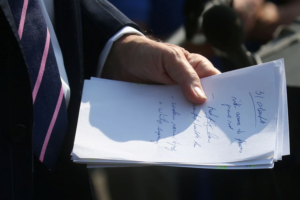From The Washington Post: “When I was 25 years old, I was ‘diagnosed with bipolar disorder’ and committed to a mental hospital in New York against my will. Instead of being treated with care, I was treated like a criminal. I didn’t want to be hospitalized. I didn’t want to take drugs. But what I wanted didn’t matter. I was strip-searched. My phone was taken from me. My clothes were stored in a closet. I was put in a gray uniform with a medical bracelet around my wrist . . .
I believe I was considered a danger because I objected to medication and vocalized my doubts about my ‘bipolar disorder diagnosis.’ The phrase used in my medical records is that I had ‘poor insight into illness’ . . .
I felt it was the psychiatrists who had impaired judgment and understanding of me. I didn’t feel like I was being seen as a whole person who existed outside of a ‘diagnosis’ and might have social and cultural factors affecting my distress that couldn’t be cured by ‘medication.’ My life before no longer mattered . . . And, ironically, the ‘care’ I was given — forcibly taking me out of my community and medicating me against my will — started to actually make me a danger to myself. I felt worthless. I felt powerless. I felt like giving up. Suicidal thoughts crept in . . .
As [Supreme Court Justice Ruth Bader] Ginsburg rightly suggested, confinement is not care. It’s a way to marginalize and further stigmatize those of us who have received ‘mental illness diagnoses.’ After my experience, I was left with serious wounds. I didn’t know how to go on. Only over the course of several months did my hardened heart begin to soften . . .
Even now, the stigma of what I went through torments me, but it’s hard to stay silent as people, including our president, tie ‘mental illness’ to mass shootings — and call for others to endure what I went through . . .
That’s why I have decided to finally share my story, which I’ve never shared publicly before. As in the #MeToo movement, which calls for people to speak up about sexual harassment and assault, I want those who have stories similar to mine to speak — so long as they’re willing and able. There are many others like me who have received ‘mental illness diagnoses’ whose bodily autonomy was taken away in the name of ‘care.’ I said no, but what I wanted didn’t matter. I hope by coming forward, I make clear that not just my voice, but all our voices deserve to be heard, our trauma recognized, and our insight taken seriously.”












